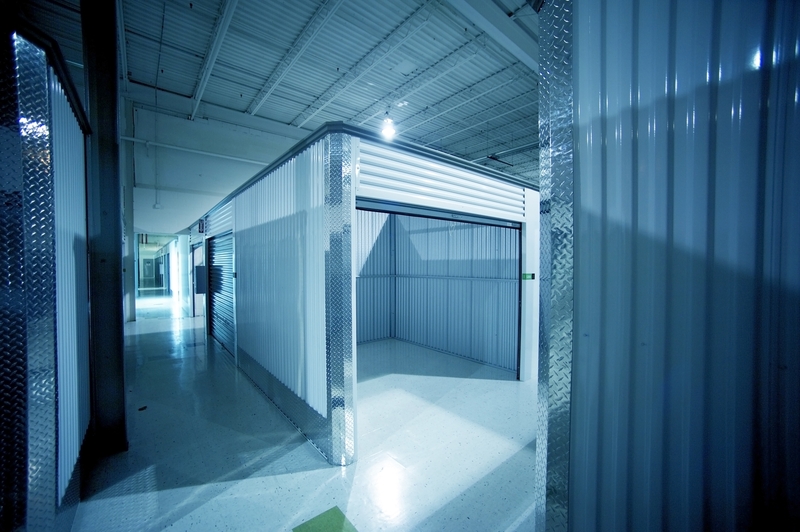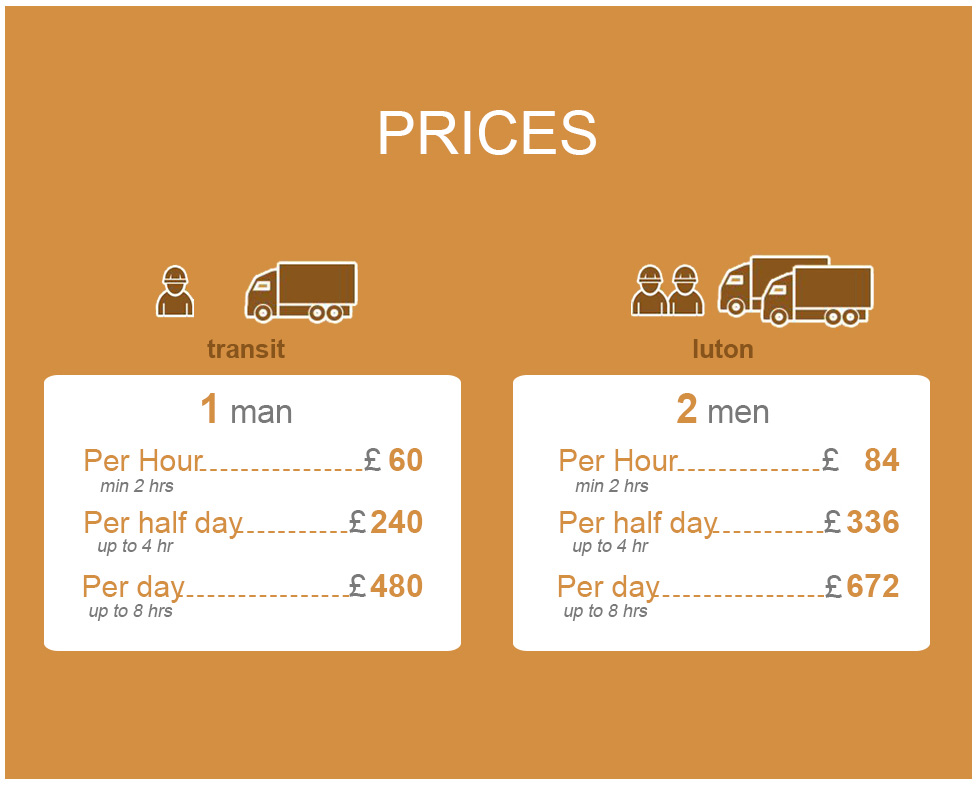Protect Your Investment: The Case for Hiring Professional Piano Movers
Posted on 04/06/2025
Protect Your Investment: The Case for Hiring Professional Piano Movers
Moving a piano isn't just another item on your moving checklist--it's a crucial decision that can impact not just your cherished instrument but also your finances, home, and peace of mind. When it comes to relocating your prized possession, hiring professional piano movers isn't just a luxury; it's a wise investment. In this comprehensive guide, we explore why trusting expert piano movers is the safest, most cost-effective, and stress-free way to protect your instrument.

Understanding the Value and Complexity of Pianos
Pianos are much more than mere pieces of furniture. Whether it's a delicate upright, a baby grand, or a full concert grand, each instrument blends precision engineering, artistic craftsmanship, and personal sentiment. The average piano consists of thousands of intricate moving parts and can weigh anywhere from 300 to over 1,200 pounds (grand pianos often sitting at the larger end of this spectrum).
- Complex Mechanics: Minute changes in alignment can affect the sound quality and playability of your piano.
- Finish Sensitivity: High-gloss finishes or antique veneers are susceptible to scratches, chips, or cracks.
- Financial Investment: Quality pianos often represent a significant investment, with some grand pianos exceeding $100,000.
- Sentimental Value: Pianos often carry emotional value, being family heirlooms or cherished gifts.
Why would you risk such an investment by attempting a DIY move or hiring general movers?
Common Risks of Moving a Piano Without Experts
While it might be tempting to save money by moving a piano yourself or relying on friends, the risks are substantial. Here's why:
1. Physical Damage to the Instrument
- Scratches or Dents: Even slight mishandling can mar your piano's surface.
- Broken Legs or Casters: Pianos have delicate structural components prone to breakage under stress.
- Internal Damage: Incorrect shifting can damage hammers, strings, or keys, leading to costly repairs.
2. Risk of Personal Injury
- Weight and Balance Issues: The uneven weight distribution makes moving pianos hazardous.
- Back Injuries and Strains: Inexperienced movers are at high risk for serious injuries.
3. Damage to Property
- Scratched Floors and Walls: One wrong move can gouge hardwood floors or chip corners.
- Doorway and Staircase Challenges: Navigating tight spaces can lead to accidental property damage.
All these risks can quickly turn your move into an expensive mistake.
What Sets Professional Piano Movers Apart?
Expert piano relocation specialists possess experience, techniques, and equipment that general movers simply lack. By choosing professionals, you gain:
- Specialized Training: Pianists and technicians educate movers on instrument anatomy and handling techniques.
- Proper Equipment: Heavy-duty dollies, padded slings, skid boards, ramps, and climate-controlled trucks ensure secure handling.
- Moving Strategies: Piano movers carefully plan every step--from navigating stairs and elevators to securing the instrument during transport.
- Team Coordination: Multiple trained movers work in unison using time-tested methods to evenly distribute weight and minimize risk.
Insurance and Peace of Mind
Professional piano moving companies are fully insured and licensed, providing comprehensive liability coverage. In contrast, damage during a DIY move may not be covered under standard homeowners' or moving insurance policies.
Key Benefits of Hiring Professional Piano Movers
1. Ensured Safety of Your Instrument
Proper piano moving methods involve dismantling, securing, blanket-wrapping, and using purpose-built equipment. This minimizes vibration, sudden impacts, and environmental changes that can affect tuning or structure.
2. Protecting Your Home and Belongings
Not only do expert piano movers safeguard your piano, but they also protect floors, doorways, and walls from scrapes and dings. They use skid boards and specialized mats to prevent damage during loading or unloading.
3. Saving Time and Reducing Stress
Moving a piano is time-consuming and physically demanding for amateurs. Hiring professional movers ensures your move is quick, efficient, and worry-free, so you can focus on settling into your new space.
4. Cost-Effectiveness in the Long Run
Though professional piano moving services may seem costly upfront, they are less expensive than repairing a damaged instrument or home. Additionally, you avoid potential medical bills and the hassle of arranging repairs should accidents occur.
5. Specialized Storage and Climate Control
Are you in need of storage between moves? Many piano movers offer climate-controlled storage tailored to safeguard your piano against humidity, dryness, or temperature fluctuations, further preserving your investment.
Piano Types and Their Moving Challenges
Upright Pianos
Though more compact than grand pianos, uprights are top-heavy and cumbersome. Moving them requires carefully balancing weight and protecting vertical string alignments.
Grand and Baby Grand Pianos
With large, irregular shapes and significant weight, grand pianos must be partially disassembled before transit. This involves removing legs, pedals, and lyres while securely wrapping each component.
Digital and Hybrid Pianos
Though lighter, digital pianos often contain delicate electronics and require careful handling to prevent circuit damage or component misalignment.
Each piano type requires a custom-tailored approach, only available through experienced piano moving professionals.
What to Expect When Hiring Professional Piano Movers
On-Site Assessment
Expert piano movers typically start with an on-site evaluation. They measure doorways, staircases, and elevators, identifying obstructions and planning optimal moving routes.
Piano Preparation
- Disassembly of removable parts (legs, pedals, music stands, etc.)
- Padded wrapping to protect all surfaces
- Securing loose components
Safe Lifting and Moving
- Coordinated lifting and maneuvering
- Utilization of ramps, dollies, and skid boards
- Secure strapping within a climate-controlled truck
Delivery and Reassembly
- Careful unloading and placement in the new location
- Reassembly and fine-tuning as needed
- Cleanup and inspection for your total satisfaction
How to Select the Right Piano Moving Specialists
1. Verify Experience and Reviews
Choose piano movers with years of hands-on experience and positive customer testimonials, emphasizing reliability, professionalism, and care.
2. Ask About Equipment and Insurance
Ensure they use specialized gear and maintain full liability and cargo insurance. This guarantees protection in case of unforeseen incidents.
3. Transparent Pricing
Obtain detailed, written estimates upfront to avoid hidden fees. Clarify if your quote includes disassembly, reassembly, and stair or storage surcharges.
4. Range of Services
Many professional piano moving companies also offer storage solutions, piano crating for international moves, and on-site tuning recommendations. Choose one that can cater to your unique requirements.
The Cost of Professional Piano Moving: Is It Worth It?
Professional piano moving costs may vary, generally ranging from $150 to $1,000 or more, depending on:
- The type and size of piano
- Distance travelled
- Obstacles (stairs, narrow doors, etc.)
- Additional services (storage, urgent moves, etc.)
While this might seem steep, compare it to:
- Repairing a cracked soundboard--often thousands of dollars
- Replacing broken strings or keys
- Professional retuning ($100-$200+)
- The irreplaceable sentimental loss of a damaged family heirloom
In the grand scheme, hiring expert piano movers is an investment in peace of mind and preservation.
FAQs About Hiring Professional Piano Movers
How far in advance should I book piano moving services?
Ideally, reach out at least 2-4 weeks ahead to ensure your preferred date is available, especially during high moving seasons.
Do professional movers offer insurance?
Yes, reputable piano moving companies provide comprehensive insurance covering your instrument during transit and handling.
Is it possible to move a piano upstairs or downstairs?
Yes, skilled teams use special techniques and equipment to safely maneuver pianos through challenging spaces, stairs, and even tight corners.
Will I need to retune my piano after moving?
Yes, it's generally recommended to have your piano tuned about 2-3 weeks after relocation to allow it to acclimate to its new environment.

Why Hiring Professional Piano Movers Is the Best Choice
Entrusting your treasured piano to experts is the only guaranteed way to protect your musical investment. The right movers offer specialized knowledge, tailored equipment, and full insurance to ensure your piano--and your home--arrives unscathed.
DIY moves and generic moving services may seem cheaper at first, but often result in hidden costs, stress, and irreparable damage. Professional piano movers deliver peace of mind and long-term savings by handling every detail with precision and care.
Conclusion: Make the Smart Move for Your Piano
Whether you're moving across town or across the country, choosing specialized piano movers is essential for safeguarding the value, function, and beauty of your instrument. Don't take unnecessary risks with such a valuable piece--protect your investment by hiring professional piano movers who bring expertise, reliability, and peace of mind. Your piano--and your future self--will thank you.
Ready to Move Your Piano?
Contact trusted local piano moving experts today for a free estimate and experience the safest, most reliable way to move your treasured instrument!




